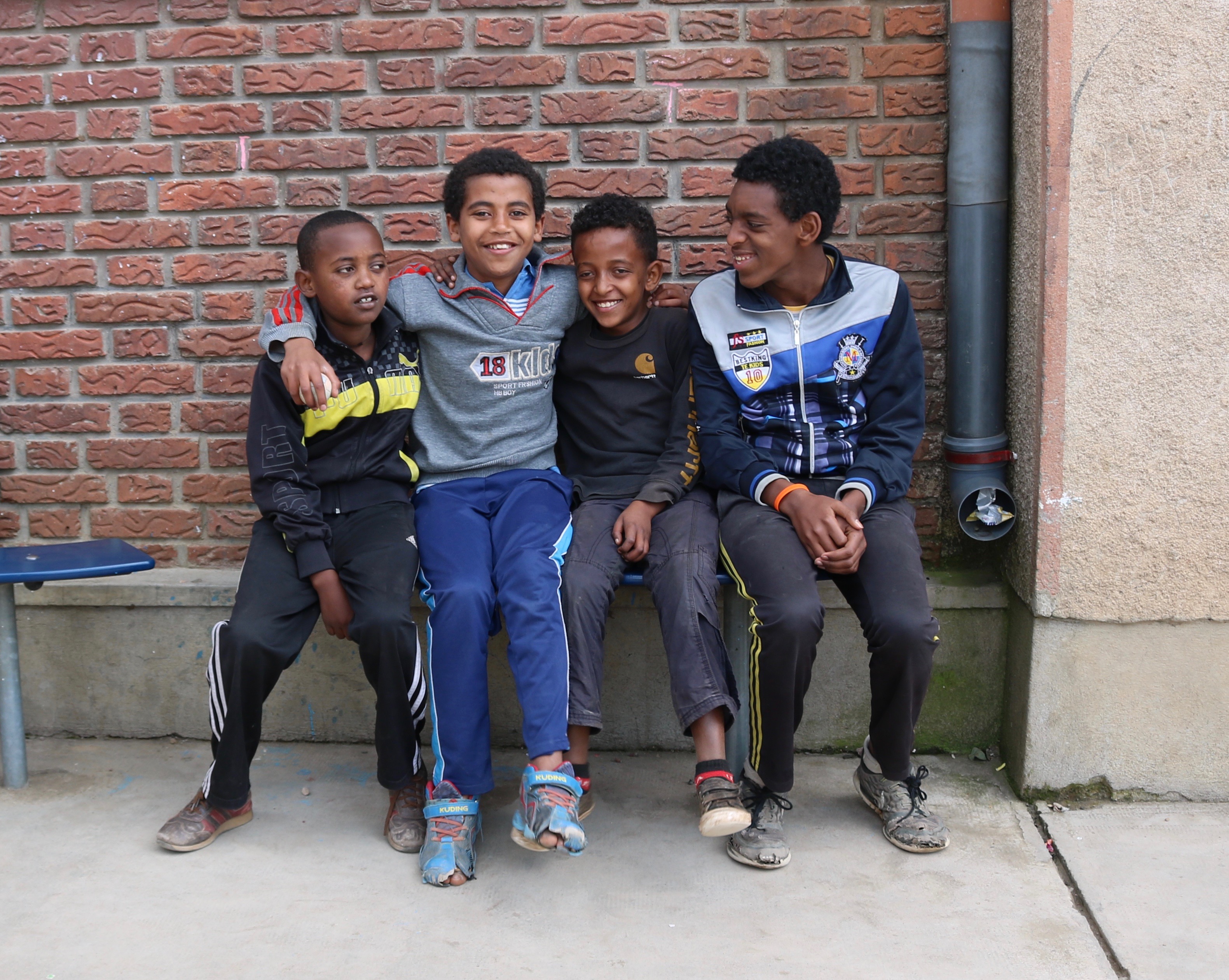If you wanted to adopt a child from Ethiopia, you might want to find another place to adopt from, because Ethiopia passed a new ban on foreign adoption on January 10, 2018, which states that no one without an Ethiopian passport can adopt a child from there.
Moses Greenspan, a volunteer at Kidane Mehret Children's Home, says, "I think it's pretty sad that it stopped, because the negatives far outweigh the positives. There may have been a few cases where there were problems with international adoptions, but as a whole I feel that it's terrible, because then you have a lot of mothers on the street with their kids, or... a lot of orphanages that are shutting down so the kids just go right back out on the streets, and its pretty sad."
Greenspan himself was adopted from Ethiopia when he was a baby. He grew up in Massachusetts with his four adopted siblings, who are also from Ethiopia. At age 20, he came back to volunteer with the orphanage for six weeks.
However, Greenspan's view about the benefits of international adoption is controversial. Many Ethiopians, including directors of orphanages called children's homes, are firm proponents of the new law. They have renewed efforts and created new ways to help the children who are currently in orphanages.
Kidane Mehret Children's Home in Addis Ababa did allow adoption when foreign adoption was still legal. Ato Assefa Kfile, a director at Kidane Mehret, spoke about how the adoption process worked before 2018.
Children were found on the streets, collected by neighborhood police, and taken to a local center where proof would be given that no one could take care of them. Children were then sent to an orphanage, Kfile explained.
"When the children come we raise them. If they get adopted, they will be given to their adopted parents through an agency agreement. If they don't get adopted, they will continue to be raised in the orphanage," Kfile said about the adoption process.
After children were adopted, they retained the right to return to visit the orphanages or their parents. In addition, adoptive parents must submit yearly reports about the child, which are sent to the orphanage and the government until the child turns eighteen.
With the new law children must remain in the country—and many live in children's homes where they are taken care of by a house mother and a house father. They are expected to go to school and do their homework, as well as chores.
Yenege Tesfa—the Hope for Tomorrow Orphanage—houses boys and girls in Gondar, Ethiopia. This orphanage was founded by Nigisti Gebrselassie, who has dedicated her life to these children.
Gebrselassie provides different services to her community—offering a home, education, medical care, agriculture, training, and a daycare center. She finds ways to educate her community so they can take care of themselves and their children.
The daycare center allows mothers to work or go to school. The children are taught math, reading, and writing, and receive training in farming, childcare, and HIV awareness. The daycare has one nurse, one teacher, and one coordinator in charge of the program.
This system has been in place since before the new law was passed. Yenege Tesfa never offered adoption as a service at their orphanage.
"I personally don't like adoption, because when a child gets adopted and they go outside of Ethiopia they might get good education or be in a good environment," said Gebrselassie.
"At the end of the day, you want to know your roots. You want to know your identity, and I see so many of them that this has become difficult for them, and if they come back they don't know the language. They don't know their families—they don't know the country and it's really challenging for them. Not everyone that adopted children can take care of them in the right way," Gebrselassie said in reference to foreign adoption.
"Kids should grow up in their own country. We may not give them the best life, but which one do you choose? The best life where you take them to Europe or America, or they live here and they may not get the best life as they would in another country, but they know their identity and they are living in the community and in their culture?" Gebrselassie asked.
She explains that many Ethiopians want to see children grow up in their culture and in the country they were born in. Children's homes provide an alternative to foreign adoption.
"There are still things that need to be done to improve with the new law. With any law that is passed it is not perfect right away. Improvements that can better the situation will be made because the government wanted to just close it so more children didn't get affected but there wasn't really thinking on how it can affect the children currently in the orphanages." said Gebrselassie.
"The government didn't really prepare before they closed foreign adoption. That's one of the challenges of it being closed, but I hope in the near future it will get better," Gebrselassie added.






















